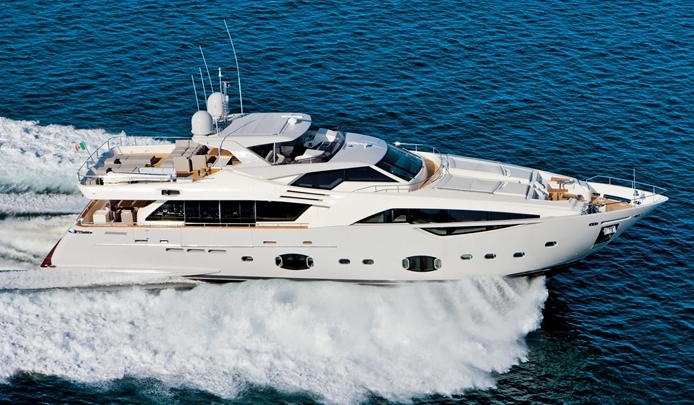Finding the captain and crew that match both your boat and your personality is critical.
In the end, the most we want from a new yacht is the opportunity to really enjoy it. But if someone doesn’t do their job the way you want it done, and that someone is a crewmember, your sailing will not go smoothly. Fortunately, with guidance and a good strategy, a yacht owner can find the right match for both his boat and personality. For advice on how to go about finding the best professional to take the helm, we asked Rupert Connor, the president of Luxury Yacht Group, a crew placement and yacht management business that’s based in Ft. Lauderdale and operates global offices. Connor started the company in 2001, after spending nine years at sea as a professional yacht captain.
If there’s a recruitment strategy to avoid, says Connor, it’s hiring the first referral from a well-meaning friend. While recommendations from trusted sources are helpful, “there are times when it can feel like trying to fit a square peg into a round hole,” says Connor. “Before you can choose someone for your crew, you need to have developed a clear definition of the job you’re trying to fill.” One way to do that is to view the job subtitle from three perspectives.
Whether you need navigational know-how or simple cocktail delivery – or both – having the right captain and crew is imperative.
The first consideration is regulatory. What are your personal requirements for basic licensing? If the captain is running a private yacht for recreational use only (that means no commercial charters), licensing may not be required. But even so, you may feel more comfortable knowing the person at the helm of your brand-new Ferretti is a professional with a 100-ton license. Your insurance company might like that, too.
The next consideration is experience. “You’ll probably want a professional who’s familiar with the type of boat you own as well as the area you’ll be cruising in,” says Connor. “If you plan to run the boat in the Med, you’ll want a captain who knows those waters. If your yacht has Arneson drives, you’ll want an engineer whose familiar with that propulsion, and a captain who knows its unique handling characteristics. Or, if you plan to cruise the Bahamas and your vessel draws seven feet, you’ll want a captain with experience navigating large boats in shallow water. Define those attributes before you begin the search for crew.”
The third consideration, says, Connor, is the most important one of all. “It’s the human factor—personality. Are you looking to hire crew who are all about singing, dancing and entertaining? Or, would you prefer to be keeping company with a staff that’s seen but not really heard? It’s important for the crew you hire to know what type of owner you are. Personality is a critical component for a successful hire, and it’s why our company interviews so many people for each open position. There may be 270 deckhands that are qualified for a particular job, but only a few will make for a good match with the owner, who dictates the tone of the vessel.”
Connor says he recently placed crew for an owner who made his money in medical research. “He’s very scientific about everything, including his boat’s budget. He needed professionals who could compile and present detailed data on why service would be needed on a particular machine at a particular time. That’s very important to him, so we found a good match. For another client, that much information might be too much. He may just want more champagne, please.”
The more you can define what you’re looking for, the more likely you’ll be able to realize a great fit between you and the crew. But there is a caveat, says Connor. “Some owners will try to find the perfect person, but that professional doesn’t exist. And the quest for perfection can cause some owners to bypass a highly qualified candidate.” An owner who plans to cruise New England and the Caribbean, for instance, may overlook a candidate with experience only in the Caribbean only, even though that person is a great personality match for the owner. “Owners don’t always realize these professionals can be trained and are very willing to learn, provided owners communicate their needs clearly,” says Connor. “To make the owner/crew relationship work, ongoing communication is critical.”

